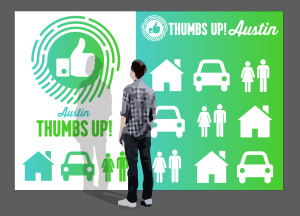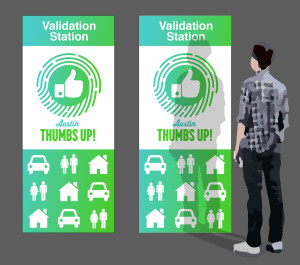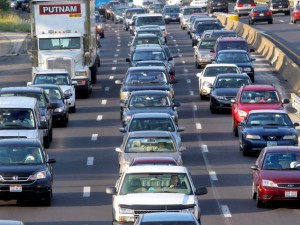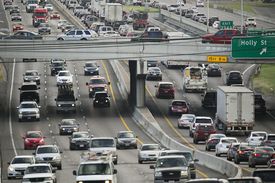 I want Uber, Lyft, GetMe and other rideshare companies to stay in Austin, and I want people who feel safer with fingerprinted drivers to have a widely available, meaningful choice.
I want Uber, Lyft, GetMe and other rideshare companies to stay in Austin, and I want people who feel safer with fingerprinted drivers to have a widely available, meaningful choice.
If you share this goal, I’ve got good news for you as reported in Ben Wear’s article in the Statesman. We now have almost every point of view at the table working together to see if we can craft a new and innovative way forward. I am working with some of my Council colleagues, organizations such as SafePlace, rideshare companies Uber, Lyft and GetMe, creative minds in the start-up community such as those from Capital Factory, and city transportation staff, to see if we can create a “non-mandatory” option that will better enable us to reach the desired number of fingerprinted drivers.
Austin is best served with widely available rideshare options in which passengers have a meaningful choice of selecting a fingerprinted driver. Neither the status quo, which does not provide this choice, nor a mandatory fingerprinting ordinance is the best way to achieve this goal.
Some in our community wish to mandate all  drivers obtain fingerprint background checks even though this would mean that the major rideshare companies leave Austin. However, our public-safety officials tell us rideshare companies make us safer by significantly reducing drunk driving.
drivers obtain fingerprint background checks even though this would mean that the major rideshare companies leave Austin. However, our public-safety officials tell us rideshare companies make us safer by significantly reducing drunk driving.
Some in our community oppose mandating fingerprinting. However, our public safety officials also tell us that fingerprinting improves safety because it establishes the driver is the person background checked and it aids in post-incident investigations.
Part of the reason we’re trapped in this either/or box is that we’re not considering the larger issue of how government should best advance its interests in a changing economy.
Government has a legitimate interest in public safety that cannot be left up to market forces. But as businesses adapt to survive a changing world, the way that government deals with those businesses must evolve and change as well.
A hundred years ago, government responded to the Industrial Revolution by creating new kinds of regulations to protect people and the environment in ways that were not previously necessary. Today, a new sharing economy is developing, in which many of Austin’s residents participate, that is giving rise to new kinds of safety issues as  strangers engage with each other in an increasing number of direct interactions. And this is happening not just in rideshare platforms but in other platforms as well, such as AirBnb and E-Harmony.
strangers engage with each other in an increasing number of direct interactions. And this is happening not just in rideshare platforms but in other platforms as well, such as AirBnb and E-Harmony.
The old ways of regulating may not be those that best apply to the new world. In this light, the way government should engage with Uber, Lyft, and GetMe may have as much in common with AirBnb as it does with Yellow Cab.
Austin should be the birthplace for a new way for government to meet its responsibilities in this new sharing economy. Austin is a great city filled with creative people. We must develop new ways that are as creative and innovative as are the emerging platforms.
I am working with some of my Council colleagues to draft a new ordinance that provides incentives — but not a mandate — for drivers to verify their identities by undergoing fingerprint background checks. It builds on the incentive elements of the December ordinance to increase the number of rideshare drivers who voluntarily fingerprint background checks to a level that provides a meaningful choice.
We could do something like E-Bay when it gives a trusted vendor a PowerSeller badge. But we could go further and create a “badge” certified by an independent, secure, third party that would verify a person had voluntarily passed a fingerprint check. That badge could be the first cross-platform badge in the world to begin to voluntarily appear in profiles that we all set up. An Austin “Thumbs Up” badge could appear for drivers, passengers and all participants in peer-to-peer apps.
And then, to really power the badge to meet our goal, we would provide incentives. Maybe we only allow drivers with the Thumb’s Up badge to pick up close to the convention center during SXSW or at the airport? What if choosing a driver with a “Thumbs Up” badge resulted in a less expensive fare for a passenger (with no decrease in the driver’s share)? With these kinds of incentives, more drivers would voluntarily get fingerprinted and therefore allow passengers there own choice between finger printed and non-fingerprinted drivers.
This is a more appropriate way for government to further its legitimate interests in this new sharing economy. And thinking this way could be our community’s best opportunity to give passengers a meaningful choice of fingerprinted rideshare drivers. That’s the goal. And we’ll get there in an innovative way.





